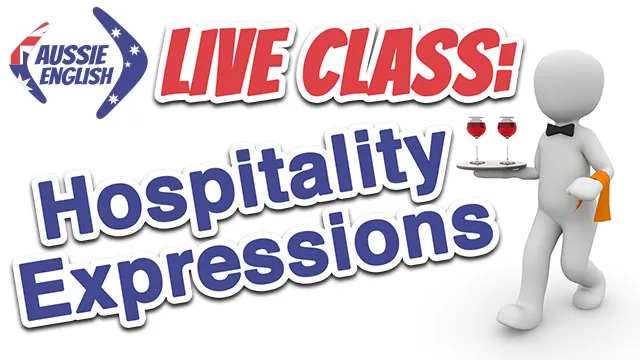AE 455 – Vlog: What Happens When You Stop Learning Grammar?
Learn Australian English in this vlog episode of the Aussie English Podcast where I talk about what happens when you stop learning grammar.
Watch this episode here!
AE 455 – What Happens When You Stop Learning Grammar?
What a shit day. Do you know what else’s shit? Grammar.
What is going on, guys. I’ve come all the way down to Geelong this week to see folks and hang out with one of my mates, James. So, yeah, (I’m) just going to make some coffee. Coffee, coffee, coffee. I got this. This is what you got to resort to sometimes, guys. Oh, look at that! Little chocolate sprinkler. That’s really lame.
What do you reckon, guys? Is going to be good or is it going to be really, really horrible. Tear here, huh? So, that looks like crap. That looks like absolute crap. Can you see that, guys? Oh, my gosh! What is that? Is that sand? Far out. That is so funny.
Oh, it’s powdered milk! So, I get it. So, beautiful. Then you mix it in anyway, right? Amazing, amazing. Oh, that’s really hot. Really, really hot. That’s not bad. Not bad. Nestlé instant coffee, guys.
What is going on, guys? I am out here. Friend’s place. This is my back yard, the garage here. What have we got? The house here and a garden that his parents have really cultivated quite a lot.
But, I thought I would chat today about grammar, okay, and, I guess, making a push from intermediate to advanced. So, grammar, grammar, grammar, grammar, grammar. Why should you stop focusing on grammar? Why should you let go of studying grammar? And what happens when you do?
We all know the grammar’s kind of important. Obviously, it’s really important for obvious reasons, in any language, if you want to be clearly understood, you need to have good grammar.
I guess the point isn’t so much, today, that I want to say that you shouldn’t learn any grammar, but it’s how you go about learning it. So, for a long time, when I was doing French, I was learning grammar out of a book. I would just sit there and do exercises again and again and again, and I wasn’t focusing on a conversation. I wasn’t really using the language as much as I could. And more recently, at least with Portuguese, I’ve kind of done the complete inverse, the complete opposite, where I’ve refused to open any grammar books. I’m not looking up any rules at the moment. I’m just focusing on using the language. I’m just speaking, speaking, speaking. I make so many mistakes. But the interesting thing here is that even though I am making so many more mistakes I’m having, I feel, more complicated conversations, I am using the language a hell of a lot more, and I am not feeling as uncomfortable now when using the language despite, I think, making even more mistakes. So, when I was using French all the time, I would be obsessing over being correct. French has, at least for English speakers, relatively difficult grammar. And so, I wanted to focus on learning that, and I would always think in my head before speaking. I would always be like, “Okay. I want to use this structure. I want to say this certain thing. How do I place this sentence together?”.I would be thinking. I’d be sitting now. I would be trying to say the sentence in my head before I would go out and just say it. And it would lead to a lot of anxiety. It lead to a lot of overthinking when ultimately that interaction that you’re going to have with whoever it is, the native speaker who you’re about to say something to is just not going to care if you get things slightly wrong, if you misplace words, if you conjugate things incorrectly, if you use the wrong noun. Ultimately, what they care about is understanding you, whether you’re correct, or whether you’re incorrect. They just want to communicate, they want to understand what you’re trying to say, and they want to have that, I guess, interaction go well.
So, that’s the good thing, the good part, at least for me. I would be very anxious and very nervous when wanting to or having to speak with native speakers in French. I would put myself down. I would think my French was horrible when in reality it wasn’t that bad and I could speak much better French in reality than I would let myself speak, because I was always holding myself back stuck in my head.
So, the complete inverse has occurred with Portuguese now where I am talking, talking, talking, talking with Kel my fiancée all the time now, and I’m incorrect. Probably almost every single sentence that I say there is something that’s incorrect, whether it’s grammar, whether it’s pronunciation, whether it’s word choice, something is incorrect, but I’m communicating and that is the best part about this, right? That’s the whole point that you’re learning English. You’re not learning English to be correct, you’re learning English to communicate, to be able to express your opinions, to be able to understand the opinions of other people, right?
And so, at the moment, it’s really been interesting. For the last week and a half, two weeks, I have just been focusing on experiencing content… Are you kidding me? It’s started raining. Alright, I’m going to have to get under the cover. Get under cover.
Alright, for the last… Alright, for the last few weeks, I’ve just been focusing on exposing myself to sentences when I’m training. What I’m actually studying, what I’m doing is, I’m listening to real sentences from real native speakers and I am saying them out loud to work on my pronunciation and also train my brain for those patterns of how these words are constructed in these sentences. So, this is what I would suggest. If you want to learn grammar, this is a different approach, this is a more passive approach, as opposed to active approach. I’m not actively using a book. I’m not actively, systematically going through a book to learn rules and then try and apply them. Instead, I’m just exposing myself to natural language and then trying to use that when I speak.
One good example the other day was that I was studying in bed with Kel next to me, and in Portuguese, instead of saying… I’m to remember the example. So, instead of saying, “I usually do something”, like “I usually go to the shops”, “I usually have a shower in the morning”, “I usually eat breakfast in the morning”. In stead of, “I usually do something”, which is a structure that we use in English all the time, the Portuguese say, “Eu costumo”, “Eu costumo”, which is like, “I…”, How would you translate that? “I…” and then the verb for like “accustomed”, to do something… It means “to do something usually”.
Anyway. The structure’s completely different. So, what I did was that I was studying these sentences and quite a few of these sentences used this structure. “Eu costumo andar”. So, “I usually walk”. “Eu costumo ter cafe da manhã as sete horas”. “I usually have breakfast at seven o’clock”. And so… and I remember this now, after doing this, I was doing these sentences, I finished my sort of study of just reading the sentences out loud, thinking about them, saying them, saying them, saying them, and then I turned to Kel, my fiancée, and this is also what’s useful if you have someone who you can speak with, and I said, “I’m going to try and use as many examples as possible of “eu costumo”, “eu costumo”. Can you correct me and tell me if I’m wrong or can you ask me more?”.
So, that was a really, really good passive way, I feel, of picking up an important part of grammar that I’m going to use too. And that’s another point. When you do this, you focus on it using the language that is important to you and important to your everyday life. You don’t need to learn every single rule in English, because you’re not going to use every single rule in English, at least on a day to day basis. You need to passively be able to understand what’s happening in English, but you don’t necessarily need to know the grammar rules to do that, right?
So, anyway, that’s what I’ve been doing recently and it’s been so, so, so, freeing. It’s really, really allowed me to stop being so anxious, to stop… Sorry, there’s mosquitoes. Get away from me! …to stop freaking out, to stop being in my head so much, to stop thinking so much, and it’s allowed my language to flow so much more readily when I speak. So, now when I speak with Kel, even after only a week and a half, my language, my Portuguese, has made leaps and bounds ahead of where it was just because I’ve kind of let go. I’m definitely making many, many, many, more mistakes than I was, but I’m also using the language a hell of a lot more than I was and I’m not worrying as much as I was in the past. I’m not in my head freaking out thinking, “Am I going to be wrong? Am I going to look like an idiot?”. I no longer care.
And this was a really good point too, and something that I wanted to mention. I watched a lecture recently about how polyglots learn languages. So, a polyglot is someone who learns many languages, or at least who can speak many languages. So, these people tend to learn one language for a year or two, and then they’ll switch to another language, and another language, and quite often, you find out that they speak, you know, five, eight, 10, sometimes even 20 languages, guys. It’s ridiculous. And it’s easy for the average person to put them on a pedestal and to think these people are just non-humans who have this special gift for learning languages, but the lecture was showing that that, in fact, isn’t the case. These people have a system, which the system quite often differs, for at least how they like to get started, but towards the, I guess, intermediate to advance area of any language that they’re learning, quite often, they’re all similar in that they make as many mistakes as they can and they don’t care about making mistakes, and they speak as often as they can and focus a lot more on communication. Okay?
So, I’ve been talking for a bit. It’s kind of just been a stream of thought following my train of thought. I wanted to get this out there and I wanted to ask you guys, how were you learning grammar right now? And maybe, do you think it could be potentially a time or sort of a chance for you to mix things up a bit, to change things and to try something different? So, if you are a bit stuck on where you’re not improving a whole lot, you’re feeling like you don’t have much confidence when you speak, you’re too in your head, maybe this is something that you should focus on. So, try maybe and go out, find a native speaker whether online whether in person in Australia if you’re here, obviously, and just… the next time that you have a chance to talk with them, don’t focus on grammar. Correct yourself. You know, if you make mistakes and you notice those mistakes getting made, correct yourself. And this makes you look smarter by the way. Every time I make a mistake at the moment and I notice it I correct myself and Kel’s always like, “Wow, you know what’s going on! That’s really, really good!”. So, speak as much as you can, use your English, don’t focus on mistakes, aside from maybe counting how many are making and the more you make the better. You know? Give yourself a pat on the back the more mistakes you make.
Anyway. Let’s have a chat in the comments, guys. I want to know how you’re learning grammar, how you’re learning to improve your English, and what you’re doing at the moment, and what you’ve had success with, and yeah maybe we can talk a bit about this another time as well.
So, that’s it for today, guys. I’m going to get inside before these mosquitoes eat me alive and I will tell you soon. Peace out.
Yeah, look at this. (It) rained for like all of 10 seconds.
Watch More Vlogs Here!
Here's what you get when you sign up!
- Read while you listen using the Premium Podcast player.
- Understand every word in every episode.
- Download all PDF transcripts and MP3s for 600+ episodes.
- Get access to bonus member-only episodes.












Responses